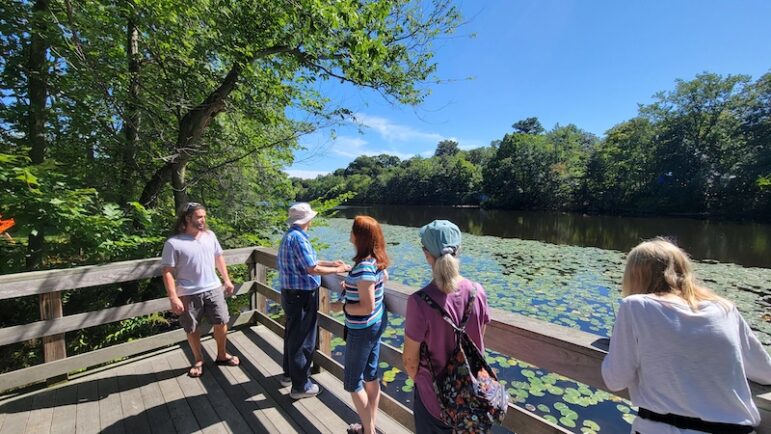
“The best way to get to Boston is by boat!” Drew Rollert told a group of people who joined the Live Well Watertown/Watertown Business Coalition Walk N Talk along the Charles River on Sept. 14.
Seeing traffic stack up on either side of the river as he sailed the Charles, Rollert has become so convinced of the possibility of using the Charles River for public transportation that he has created a company to do just that — Wada Hoppah.
Others who have investigated the possibility have dismissed it, at least one that gets as far as Watertown Square.
“People have tried stock boats, the problem is as you get to the curve it gets to 19 inches deep,” Rollert said, gesturing down the river from the Watertown Dock.
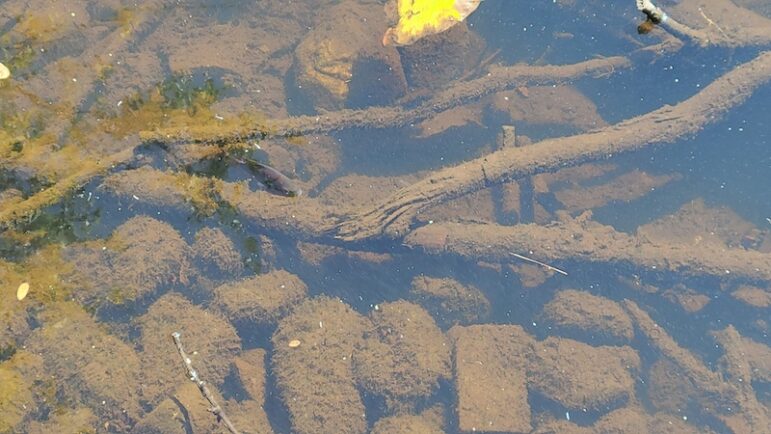
For his venture, Rollert is having the company who designs boats for rowing coaches to glide along rivers of varying depths to build a boat for Wada Hoppah.
“The boat is 47 feet long. It will be all electric,” said Rollert, who added that the three-hulled boat will not cause a wake as it sails past rowers and kayakers, and will make almost no sound. He plans to add solar panels on the roof so that people can charge their devices and he may even install a TV.
He envisions stops at the dock in Watertown Square, the Community Rowing boat house near North Beacon Street and Nonantum Road, Herter Park, a dock near Boston University, the Gloucester Street Dock near the Esplanade, and near the Hatch Shell. People would be able to get to Beacon Hill over a footbridge spanning Storrow Drive.
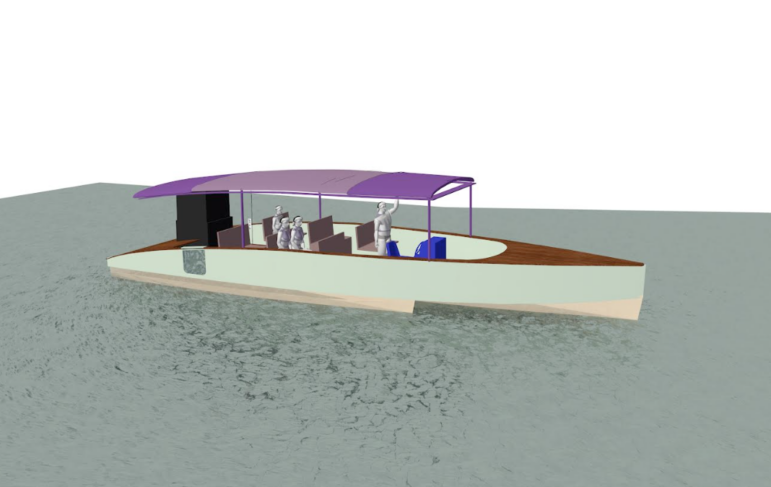
The boat could carry 12-15 people and the trip would take about 66 minutes to get from Watertown to the Hatch Shell. He also envisions an express boat, “Like the 504 bus.” The boat ride direct from Watertown to the Hatch Shell would take about 52 minutes.
People on the walk asked what the biggest hurdle to making his boat service. Getting permission and finding a place to install an electric charger is the biggest thing he must overcome right now, he said. He is working with the government entity that overseas the Charles, the Mass. Department of Conservation and Recreation, to try to find a spot. He also said that there are some political hurdles, including entities that have long used the river, and are weary of a new boat service joining them on the water.
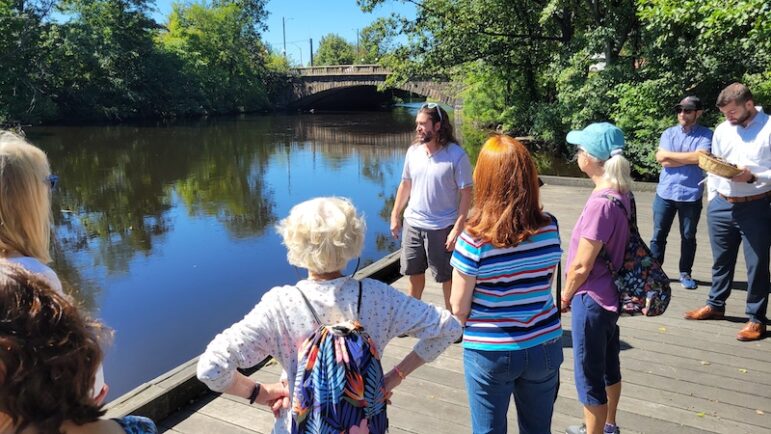
There have been water shuttles on the Charles in the past, including The Elk, which went to Watertown from Boston in the 1930s, and possibly earlier said Joyce Kelly, a board member of the Historical Society of Watertown. In the 1890s, Kelly said, the S.S. Watertown transported freight from Watertown to Salem, Marblehead and other locations on the North Shore. The steam-powered ship met its demise after a fire on the way to Lynn in 1892. The ship was able to make it near shore in Winthrop, but a woman who was thrown overboard by her husband struck her head on the propellor, according to an article by the Historical Society.
Rollert sees history of one of his boat’s, and Watertown’s, selling points.
“The Freedom Trail (in Boston) gets 4 million people a year. We need to get part of that,” said Rollert, who believes Watertown can promote its role in the Revolution, when the government moved out of Boston during the British occupation and set up in Watertown. George Washington even visited town.
Kelly said there are still some historic places along the river, including on the south side where the Stanley brothers built the first car to reach the peak of Mt. Washington in New Hampshire in 1899, according the piece on Massmoments.com.
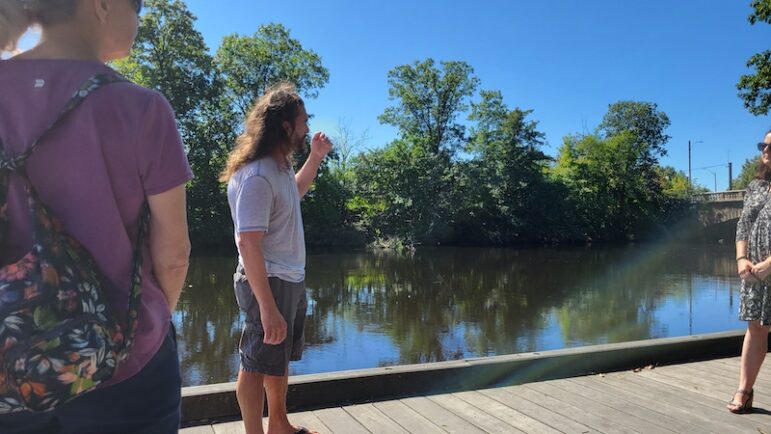
Another question people had about the new services is would be what would happen during the winter. Rollert said as a private operator, Wada Hoppah would have more leeway to run deeper into winter.
“The T’s ferry service closes on Oct. 10. A private service can say, let’s keep going,” Rollert said. “We will go as long as we can and pick it up when we can.”
Perhaps the biggest question was “How much?” Rollert said he would like to come in below what it costs to take a ride share (such as Lyft or Uber) into Boston. He sees a one-way trip costing $25, but said he will be help from seeking private companies or government to subsidize the service.
During the hour-long walk along the Charles the river remained mostly empty, with just a lone kayaker floated past, noted Doug Orifice, co-president of the Watertown Business Coalition.